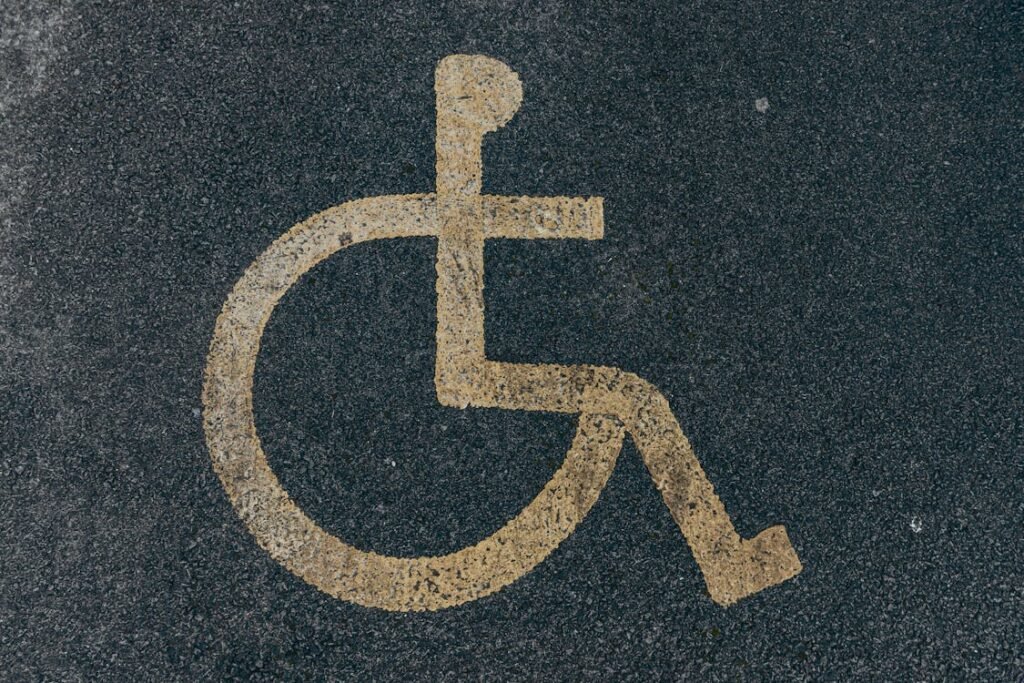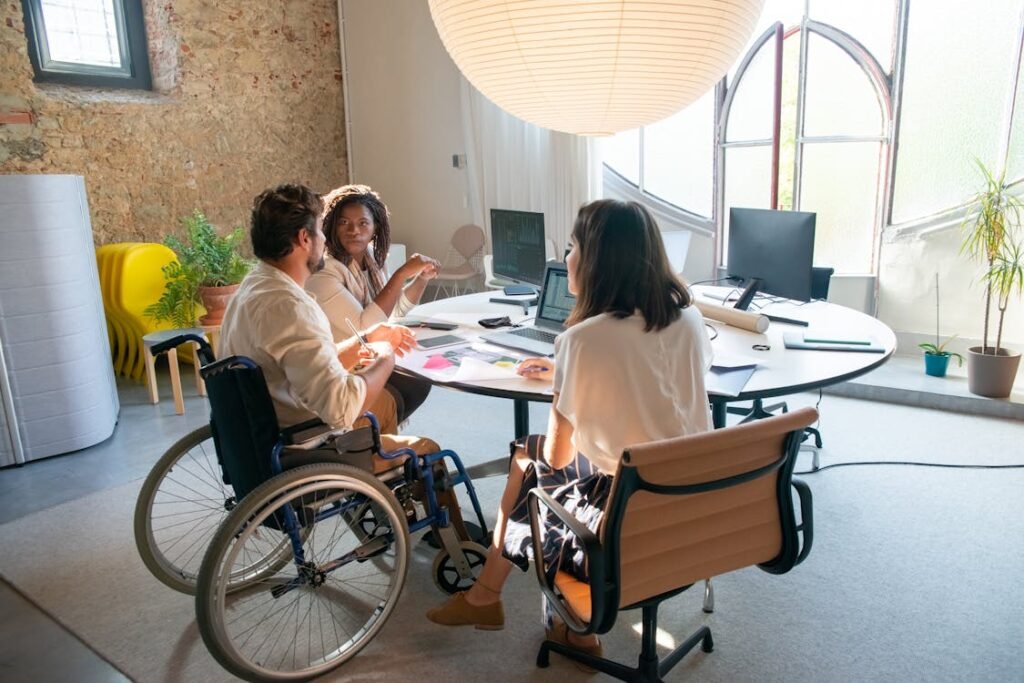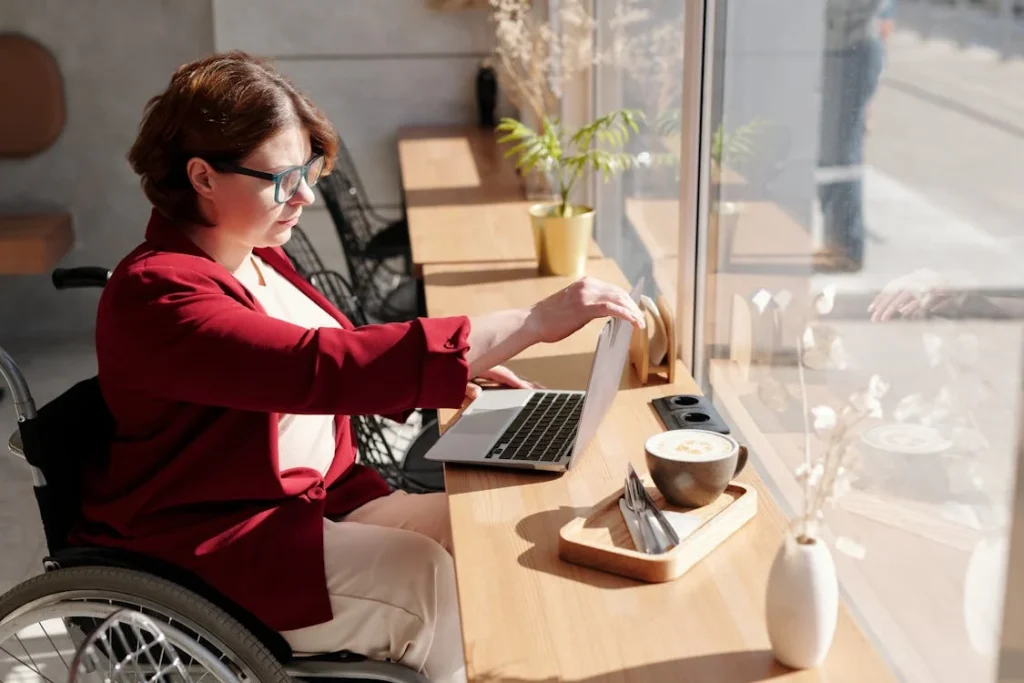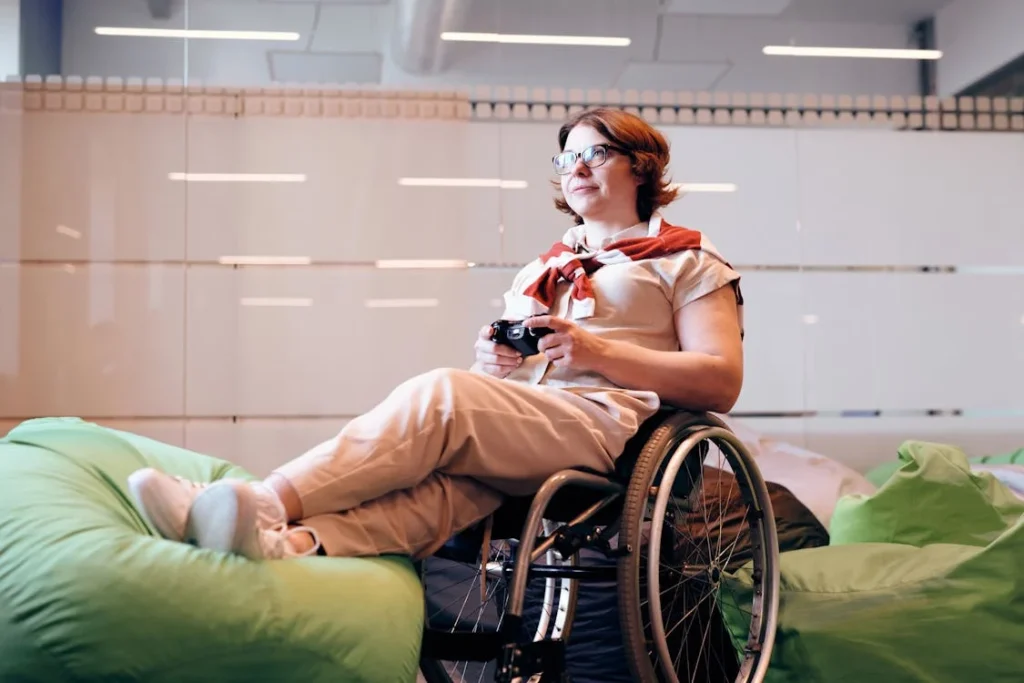Access to public spaces, jobs, healthcare, education, and digital services is a fundamental right. But for millions of people with disabilities, these basic needs can still be difficult to access. Many governments worldwide have laws that protect the rights of disabled individuals, ensuring they can live, work, and participate in society without barriers. However, knowing your rights is the first step to making sure they are enforced.

Understanding the Right to Accessibility
Every person, regardless of ability, deserves to live with dignity, move freely, and have equal access to opportunities. Accessibility laws exist to ensure that people with disabilities are not left behind.
These laws cover various aspects of daily life, including public spaces, transportation, digital access, education, and employment.
The right to accessibility is built on the foundation of equal opportunity. This means that a disabled person should have the same chances, rights, and freedoms as anyone else, without facing unnecessary obstacles.
Accessibility is not about “special treatment”—it is about removing barriers that prevent people from living independently.
Public Spaces and Mobility
Many accessibility laws focus on making public spaces more inclusive. Buildings, sidewalks, parks, and government offices should be designed to allow easy movement for people with disabilities.
This includes ramps, elevators, accessible restrooms, tactile paving for the visually impaired, and proper seating arrangements.
Transportation is also a crucial part of accessibility. Public buses, trains, and metro stations must be equipped with ramps, lifts, and reserved spaces for wheelchair users.
Announcements and signs should be available in audio and braille formats so that people with visual impairments can navigate safely.
In countries like India, the Rights of Persons with Disabilities Act (RPwD) of 2016 mandates that all public buildings and transport systems must be made accessible.
If a public place is not accessible, a person with disabilities has the right to file a complaint and demand improvements.
Equal Rights in Employment
Finding and keeping a job should not be harder for a disabled person simply because of accessibility barriers. Laws exist to ensure that workplaces provide equal opportunities and do not discriminate against individuals with disabilities.
Under disability rights laws, employers are required to provide reasonable accommodations for employees with disabilities. This could mean adjusting workstations, providing screen readers, offering flexible work hours, or allowing remote work options.
No one should be denied a job just because they have a disability.
In India, the RPwD Act mandates that 4% of government jobs be reserved for people with disabilities. Similar laws exist in many other countries, ensuring that employment is not restricted based on ability.
If an employer discriminates or refuses to make reasonable accommodations, disabled employees have the right to take legal action.

Access to Education for People with Disabilities
Education is a basic right, and no student should be denied learning opportunities because of a disability. Many accessibility laws focus on ensuring that schools, colleges, and universities provide equal access to education for disabled students.
Institutions are required to provide reasonable accommodations to ensure that students with disabilities can fully participate in classes and activities.
This may include sign language interpreters for deaf students, braille materials for blind students, wheelchair-accessible classrooms, and extended time for exams.
Schools should also ensure that their online learning platforms are screen-reader friendly and accessible for students with visual or motor impairments.
In India, the Right to Education Act (RTE) and the RPwD Act ensure that children with disabilities have the right to free and compulsory education.
Government institutions are required to adapt teaching methods, provide assistive technology, and make school infrastructure accessible. If a student faces discrimination, they have the right to demand accommodations or report the issue to authorities.
In many other countries, laws like the Americans with Disabilities Act (ADA) in the U.S. and the Equality Act in the U.K. enforce similar protections, ensuring that education remains open to all.
If a school refuses to provide necessary accommodations, legal action can be taken to ensure compliance.
Digital Accessibility: Equal Access to Technology
With much of daily life shifting online, digital accessibility is more important than ever. Websites, mobile apps, online services, and even social media platforms should be designed so that people with disabilities can use them without difficulty.
For visually impaired users, websites must include screen-reader compatibility, alternative text for images, and resizable fonts. Videos should come with closed captions so that deaf users can access the content.
Websites and mobile apps should also be navigable using a keyboard, ensuring that people with motor impairments can interact with them.
Many countries now have laws requiring businesses and government agencies to make their digital platforms accessible.
In India, the RPwD Act mandates that all public websites must be compliant with Web Content Accessibility Guidelines (WCAG).
In the U.S., the ADA requires businesses and organizations to ensure their websites are accessible, while the European Accessibility Act enforces similar rules across the EU.
If a website or digital service is not accessible, individuals have the right to file a complaint or request modifications. Ensuring digital accessibility is not just about compliance—it is about making sure that people with disabilities are not excluded from the digital world.

Protection Against Discrimination and the Right to Equal Treatment
Disability rights laws go beyond accessibility—they also ensure protection from discrimination in all areas of life.
People with disabilities have the legal right to be treated fairly and equally, whether they are at work, in school, receiving medical care, or engaging with businesses and public services.
Disability Discrimination in the Workplace
Many countries have strict laws to prevent workplace discrimination against employees with disabilities. Employers cannot refuse to hire, demote, or fire someone solely because of their disability.
If an employee requires accommodations to perform their job—such as a modified workstation, assistive technology, or flexible hours—the employer is legally required to provide them, as long as they do not create an “undue hardship” for the company.
In India, the RPwD Act protects disabled employees from discrimination in both government and private-sector jobs.
Similar protections exist under the ADA in the U.S., the Equality Act in the U.K., and the UN Convention on the Rights of Persons with Disabilities (UNCRPD), which applies internationally.
If an employer violates these rights, the employee can file a complaint, seek legal support, or escalate the matter to disability rights organizations.
Equal Access to Healthcare
Healthcare is a fundamental right, and people with disabilities should receive medical care without discrimination.
Hospitals, clinics, and healthcare providers are required to ensure that their facilities, medical equipment, and communication methods are accessible to all patients.
This means that doctor’s offices, hospitals, and pharmacies should be wheelchair-accessible, provide interpreters for deaf patients, and offer health information in accessible formats such as braille or audio.
Denying medical care due to a disability is a violation of disability rights laws and can result in legal action.
The RPwD Act in India, the ADA in the U.S., and similar laws worldwide protect disabled individuals from medical discrimination.
If a healthcare provider refuses to offer necessary accommodations, individuals have the right to file complaints with medical boards, disability commissions, or legal authorities.
The Right to Independent Living
Many accessibility laws also focus on supporting independent living for disabled individuals. Governments are responsible for ensuring that people with disabilities have access to affordable housing, financial assistance, and personal support services.
In India, the government provides schemes for accessible housing, assistive devices, and employment support to help people with disabilities live independently.
In other countries, similar programs exist to provide financial aid, transportation assistance, and community-based care services.
If a person with disabilities is denied housing, financial assistance, or necessary services due to their disability, they have the right to challenge this discrimination through legal channels.
Ensuring independent living is a key part of disability rights, and governments must take responsibility for creating a society where disabled individuals can live with dignity.

How to Enforce Your Rights and Take Action
Knowing your rights is only the first step—taking action when those rights are violated is just as important. If a person with disabilities faces discrimination, inaccessibility, or denial of services, they have legal avenues to demand change and hold organizations accountable.
Filing a Complaint with Authorities
Every country has government agencies or commissions responsible for handling disability rights violations.
In India, individuals can report accessibility issues or discrimination to the Chief Commissioner for Persons with Disabilities (CCPD) or the State Disability Commissioners under the RPwD Act.
Complaints can also be filed with local government offices, human rights commissions, or consumer protection agencies.
In the U.S., the Department of Justice (DOJ) and the Equal Employment Opportunity Commission (EEOC) handle complaints related to the ADA. In the U.K., individuals can seek justice under the Equality and Human Rights Commission (EHRC).
Similar agencies exist in Australia, Canada, and the European Union to enforce disability laws and investigate discrimination cases.
If an organization or business does not comply with accessibility laws, individuals can demand improvements, request financial compensation, or take legal action.
Many complaints can be resolved by working with advocacy groups or legal advisors, but formal legal proceedings are an option if necessary.
Seeking Legal Support and Advocacy
When a disability rights violation occurs, it is helpful to seek legal advice from lawyers specializing in disability law. Many non-profit organizations and advocacy groups provide free legal aid and representation for people with disabilities who are facing discrimination.
Groups such as The National Centre for Promotion of Employment for Disabled People (NCPEDP) in India, Disability Rights UK, and the American Disability Rights Network (DRN) help individuals fight for their rights and ensure that accessibility laws are properly enforced.
If an issue is widespread—such as a public transport system failing to accommodate wheelchair users or a major employer refusing to hire disabled workers—advocacy groups can push for legal reforms, public awareness campaigns, and media coverage to bring attention to the problem.
Using Social and Community Pressure
In many cases, businesses and organizations improve accessibility only when they face public pressure. Raising awareness about accessibility issues through social media, petitions, and public campaigns can lead to positive change.
Customers and community members can use reviews, complaints, and direct communication to demand better accessibility from businesses, schools, and government offices.
Many companies care about their reputation and will act quickly to fix accessibility barriers when the issue is highlighted publicly.
The Power of Knowing Your Rights
The fight for accessibility is ongoing, and disabled individuals should never feel powerless. Laws exist to protect their rights, and by using legal channels, advocacy support, and public awareness, real change can happen.
The more people who demand accessibility and equal treatment, the closer we get to a society that is truly inclusive for all.
At Robobionics, we believe in empowering individuals through technology, education, and awareness. If you or a loved one needs information on assistive technology, prosthetics, or accessibility solutions, reach out to us—we are here to help.

The Role of Businesses in Enforcing Accessibility Rights
While governments set laws and regulations to protect the rights of people with disabilities, businesses also have a responsibility to ensure accessibility.
Whether it is a retail store, a healthcare facility, a corporate office, or an online service, businesses play a critical role in making accessibility a reality.
The Ethical and Economic Value of Accessibility
Many businesses assume that accessibility is just about following the law, but it is also a smart business decision.
Companies that invest in accessibility attract more customers, improve brand loyalty, and create a welcoming environment for all users. A business that excludes disabled customers is not just violating human rights—it is turning away millions of potential buyers.
For example, if a shopping mall is inaccessible to wheelchair users, those customers will shop elsewhere. If a website does not support screen readers or captioned videos, visually impaired or deaf users will abandon the site in frustration.
By making small but significant improvements, businesses increase their customer base, improve user experience, and gain a reputation for being inclusive.
How Businesses Can Proactively Improve Accessibility
Instead of waiting for legal complaints or government penalties, businesses should take proactive steps to become more inclusive.
Training staff on disability rights and respectful customer interactions is one of the easiest and most impactful ways to improve accessibility.
Employees should know how to offer assistance to customers with disabilities, communicate with non-verbal individuals, and accommodate service animals.
For physical locations, businesses should ensure ramps, elevators, wide aisles, accessible restrooms, and clear signage. Simple changes, like placing checkout counters at wheelchair-friendly heights or offering an alternative to touchscreen kiosks, make a big difference.
In the digital space, companies should ensure their websites and mobile apps meet accessibility standards.
E-commerce businesses, banks, and service providers should test their platforms using assistive technology, ensuring that visually impaired or mobility-challenged users can access their services without obstacles.
Accessibility as a Competitive Advantage
Companies that embrace accessibility not just as a legal requirement but as a business strategy gain a strong competitive advantage.
In industries like technology, healthcare, hospitality, and education, accessibility-driven innovation leads to better products, improved customer experiences, and stronger brand loyalty.
Some of the biggest global brands, such as Apple, Microsoft, and Google, have built accessibility into their core products, ensuring that disabled users have equal access to technology.
Similarly, businesses that prioritize universal design—creating products and services that work for everyone—stay ahead of competitors who only focus on compliance.
As consumer awareness of accessibility grows, companies that fail to prioritize it will lose customers, face reputational damage, and struggle to adapt to legal changes.
By taking action today, businesses can position themselves as leaders in inclusivity and innovation, ensuring a future where everyone, regardless of ability, can participate fully in society.

The Global Push for Stronger Accessibility Laws
While many countries have introduced accessibility laws and disability rights protections, there is still a long way to go. Lack of enforcement, outdated infrastructure, and digital barriers continue to exclude millions of people with disabilities from fully participating in society.
Governments, advocacy groups, and individuals are pushing for stronger, more comprehensive laws that go beyond basic compliance and create a world where accessibility is the norm, not an afterthought.
Strengthening Legal Enforcement
One of the biggest challenges in accessibility law is poor enforcement. While laws like the RPwD Act in India, the ADA in the U.S., and the Equality Act in the U.K. exist, many businesses and public institutions fail to follow them.
In many cases, organizations ignore accessibility requirements because penalties are weak or enforcement is inconsistent.
This leaves individuals with disabilities with the burden of fighting for their rights, filing complaints, and taking legal action—a process that can be exhausting and slow.
Advocacy groups and disability rights activists are working to push for stronger penalties, increased government oversight, and stricter timelines for accessibility compliance.
Some countries are considering automatic audits and fines for non-compliant businesses, shifting the responsibility away from individuals and onto regulators.
The Rise of International Accessibility Standards
With globalization and digital transformation, accessibility is no longer just a local issue—it is a global concern. Many companies operate across multiple countries, which means they must comply with different disability laws in different regions.
To create a more unified approach, international organizations like the United Nations (UN) and the World Health Organization (WHO) are working on global accessibility frameworks.
The UN Convention on the Rights of Persons with Disabilities (UNCRPD) has been signed by over 180 countries, encouraging nations to align their laws with international human rights standards.
Similarly, the Web Content Accessibility Guidelines (WCAG) have become a global benchmark for digital accessibility, ensuring that websites and mobile apps are designed with disabled users in mind.
Companies that meet these international standards are better prepared to operate in a world where accessibility is expected, not optional.
The Role of Technology in Shaping Future Accessibility Laws
As technology advances, new accessibility challenges and opportunities are emerging. The rise of artificial intelligence, virtual reality, and smart devices has opened up new ways for disabled individuals to interact with the world, but it has also created new barriers.
Many governments are now discussing future-proof accessibility laws that will regulate how AI-driven customer service, self-driving cars, and virtual environments accommodate people with disabilities.
If accessibility is built into new technologies from the start, the world will move toward true inclusion, rather than constantly fixing barriers after they are created.
A Future of Universal Accessibility
The movement toward stronger accessibility laws is not just about complying with regulations—it is about creating a fair, inclusive society where every individual can participate equally.
With growing public awareness, legal advancements, and technological innovation, the world is moving toward a future where accessibility is not seen as an obligation but as a fundamental human right.
Conclusion
Accessibility laws exist to ensure that people with disabilities can live with dignity, independence, and equal opportunities. From public spaces and workplaces to digital platforms and healthcare, these laws protect the rights of millions and push society toward true inclusivity. However, laws alone are not enough—strong enforcement, corporate responsibility, and continuous advocacy are essential to making accessibility a reality.
As technology evolves and awareness grows, businesses, governments, and individuals must embrace accessibility as a fundamental right, not a favor. Whether it’s ensuring ramps in buildings, captioning for videos, or equal job opportunities, every step toward accessibility creates a fairer and more inclusive world.
At Robobionics, we believe in empowering people through technology and advocacy. We are committed to breaking barriers, providing innovative prosthetics like Grippy™, and promoting inclusivity in every aspect of life.
If you or a loved one need guidance on assistive technology or accessibility solutions, reach out to us today—because everyone deserves equal access to the world.




Great article! It really helped me understand the challenges of finding the right special needs daycare. Knowing there are resources like Companions specializing in special child care is fantastic, especially for parents looking for options near me.